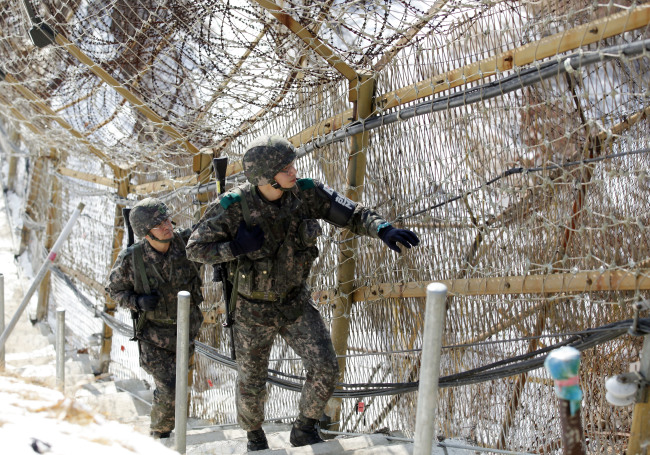South Korean lawmakers on Thursday expressed support for the BBC’s reported plans to broadcast radio news in North Korea, saying the spread of information would likely help improve human rights standards in the oppressive state.
But lawmakers here were divided over whether the BBC should be allowed to broadcast from the South. They also raised doubts about the BBC’s ability to reach listeners in the North as Pyongyang authorities would likely try to block the BBC’s frequencies.
“I consider the plan meaningful as it would provide outside information to the citizens of the secretive state,” Rep. Na Kyung-won of the governing Saenuri Party told The Korea Herald. She is the chief of the National Assembly’s Foreign Affairs and Unification Committee.
But lawmakers here were divided over whether the BBC should be allowed to broadcast from the South. They also raised doubts about the BBC’s ability to reach listeners in the North as Pyongyang authorities would likely try to block the BBC’s frequencies.
“I consider the plan meaningful as it would provide outside information to the citizens of the secretive state,” Rep. Na Kyung-won of the governing Saenuri Party told The Korea Herald. She is the chief of the National Assembly’s Foreign Affairs and Unification Committee.

“Access to information is in itself a human right,” Na said earlier.
“I am in full support of the idea,” Saenuri Rep. Ha Tae-keung told The Korea Herald, while Rep. Shin Kyoung-min of the main opposition New Politics Alliance for Democracy said the proposal “wasn’t a bad idea.”
Unnamed BBC officials said the company had plans to set up a Korean language news service to reach the 25 million citizens of the North, according to The Telegraph on Wednesday. The plan has garnered support from the British Parliament, the report said.
If the BBC begins a radio news service for the North, it will join the Voice of America, Radio Free Asia and South Korean public broadcaster KBS, the only other media outlets trying to provide outside information to the North through radio signals.
Technicalities such as how the BBC broadcasts would be sent to the North were unclear though, as the plan is still in its early stages.
Lawmakers here voiced mixed opinions on the details.
“I doubt the BBC will be able to get through the North’s firewall,” Shin said.
If the BBC uses shortwave signals to reach the North, authorities there would easily block the frequencies, according to radio industry officials here.
Shin also said any BBC relay station set up in the South to send radio signals to the North would be set up “secretly.”
“I don’t think detailed information on building a relay station for sending news to the North would be disclosed publicly,” the legislator said. It would not be something for him to either support or oppose, he added.
Ha, an outspoken critic of Pyongyang, said he would fully support any effort by the BBC to set up news services for the North in his capacity as a lawmaker in Seoul.
“If there is any bill that must be remedied or a regulation that must be adjusted, I will do it,” he said.
Na, meanwhile, said that she hoped the BBC’s efforts would help convince the North to “change by communicating with and coming out to the international community.”
By Jeong Hunny (hj257@heraldcorp.com)
-
Articles by Korea Herald










![[Hello India] Hyundai Motor vows to boost 'clean mobility' in India](http://res.heraldm.com/phpwas/restmb_idxmake.php?idx=644&simg=/content/image/2024/04/25/20240425050672_0.jpg&u=)








